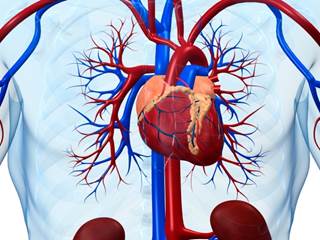Autonomic Neuropathy Causes, Symptoms, Diagnosis and Treatment

What Is Autonomic Neuropathy?
Autonomic neuropathy occurs when the nerves that control involuntary bodily functions are damaged.
The nerve damage interferes with the messages sent between the brain and other organs and areas of the autonomic nervous system, such as the heart, blood vessels and sweat glands.
Autonomic neuropathy may be experienced in a number of ways, depending on the organ system involved, for example difficulty adapting to changes in posture, or digestive symptoms.
. Symptomatic treatment is available for many symptoms associated with autonomic neuropathy, and some disease processes can be treated directly.
Causes Of Autonomic Neuropathy:
Autonomic neuropathy may occur due to inherited or degenerative neurologic diseases or injury of the autonomic nervous system from an acquired disorder.
Side effects of drugs can cause abnormalities in the function of the autonomic nervous system, producing an iatrogenic form of autonomic neuropathy.
Common causes include:
- Heavy metal poisoning
- Autoimmune disorders
Sjögren’s syndrome
Lupus sarcoidosis
Anti-NMDA receptor encephalitis - Diabetes mellitus
- Multiple sclerosis
- Parkinson’s disease
- HIV and AIDS
- Hereditary disorders
familial dysautonomia
Ehlers-Danlos syndrome - Pure autonomic failure
- Amyloidosis
- Botulism
- Chronic alcohol misuse
- Some bacterial infections
Lyme disease
tuberculosis
Helicobacter pylori - Spinal cord injury
- Surgery or injury involving the nerves
- Physical trauma or injury
- Closed brain injury caused by asphyxiation, poisoning or encephalitis
The following factors increase the likelihood of developing autonomic neuropathy:
- Diabetes.
- Other diseases
Amyloidosis
Porphyria
hypothyroidism
cancer
Symptoms Of Autonomic Neuropathy:
The symptoms of dysautonomia are numerous and vary widely from person to person depending on the nerves affected and underlying cause. They develop gradually over years.
Signs and symptoms include:
- Excessive fatigue
- Excessive thirst (polydipsia)
- Lightheadedness or dizziness, often associated with orthostatic hypotension (abnormally low blood pressure on standing), sometimes resulting in syncope (fainting)
- Rapid heart rate or slow heart rate
- Blood pressure fluctuations
- Difficulty with breathing or swallowing
- Shortness of breath with activity or exercise
- Distension of the abdomen
- Mydriasis (abnormal dilation of the pupils) leading to blurry vision
- Urinary incontinence or neurogenic bladder dysfunction
- Gastroparesis (delayed gastric emptying) with associated nausea, acid reflux and vomiting
- Constipation
- Excessive sweating or lack of sweating (anhydrosis)
- Heat intolerance brought on with activity and exercise
- Sexual problems including erectile dysfunction in men and vaginal dryness and orgasmic difficulties in women
Diagnosis Of Autonomic Neuropathy:
The following tests are conducted in order to diagnose autonomic neuropathy:
- Valsalva maneuver
- Tilt table test
- Gastric emptying tests
- Quantitative sudomotor axon reflex test (QSART)
- Thermoregulatory sweat test
- Urodynamic testing
- Small fiber neuropathy biopsy
- Endocrine testing
Treatment Of Autonomic Neuropathy:
There is no cure for autonomic neuropathy.
However, the following treatment options may help in relieving symptoms:
- Drugs can be used to treat an assortment of symptoms with varying degrees of success
fludrocortisone
midodrine
ephedrine
SSRIs
Anticonvulsants - Combating orthostatic intolerance
Elevation of the head of the bed
frequent small meals
a high-salt diet
fluid intake
Compression stockings. - Proton-pump inhibitors
- H2 receptor antagonists
- cardiac ablation,
- balloon angioplasty procedure
- Dysautonomia secondary to autoimmune diseases or multiple sclerosis (MS) can often improve if the underlying disorder is diagnosed and therapy targeted for the underlying disorder is successful.
- Immunosuppressive treatments
By : Natural Health News




